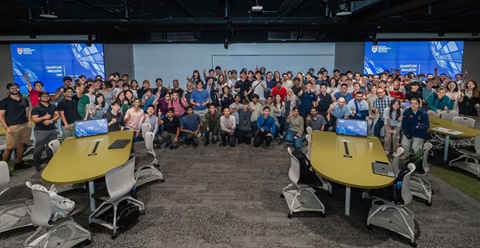17th International Science Youth Forum - Innovation Unified: Towards a Better Future
Held from 6 to 10 January 2025, the 17th International Science Youth Forum (ISYF) continues to unite bright young minds and renowned scientists in pursuit of groundbreaking discoveries. This year’s forum welcomed a total of 128 students and 45 educators from 15 countries. Themed “Innovation Unified: Towards a Better Future,” it emphasised the importance of unity in driving novel ideas and groundbreaking discoveries to address the global challenges facing humanity.
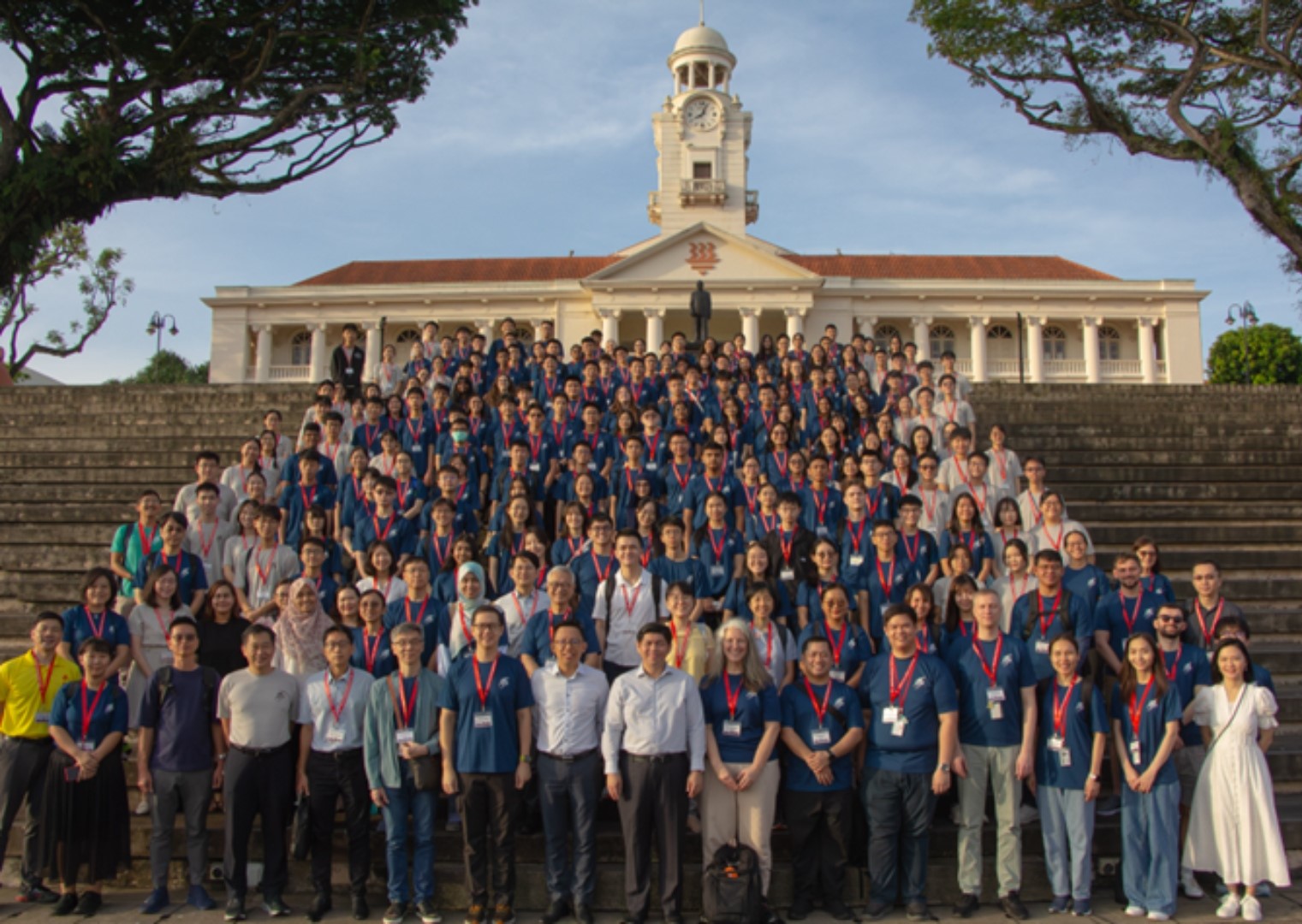 Delegates, educators, facilitators at ISYF 2025.
Delegates, educators, facilitators at ISYF 2025.
Over the five days, participants from around the globe immersed themselves in a variety of activities and learning experiences designed to inspire curiosity and foster collaboration. From exploring the Singapore Maritime Gallery to engaging with cutting-edge research at the NUS Electrical and Computer Engineering (ECE) labs, the participants exchanged insights, sparked ideas, and built lasting friendships. Building on these immersive experiences, the forum’s masterclasses and lectures further expanded delegates’ understanding of cutting-edge science.
-giving-a-talk-on-nanoscience-during-the-nus-tour.png?sfvrsn=84194eae_2) [Left] Prof Sow Chorng Haur (Department of Physics, NUS) giving a talk on nanoscience during the NUS tour; [Right] Students experienced NUS ECE Robotics.
[Left] Prof Sow Chorng Haur (Department of Physics, NUS) giving a talk on nanoscience during the NUS tour; [Right] Students experienced NUS ECE Robotics.
Masterclasses
ISYF stands out for its unique ability to connect young minds with world-renowned scientists. This year’s Masterclasses spanned disciplines such as biochemistry, theoretical physics, and more, broadening horizons and encouraging participants to delve into new and emerging fields besides their existing interests.
A notable highlight of this year's event was the participation of distinguished Nobel Laureates Sir Tim Hunt (2001 Nobel Prize in Physiology or Medicine) for his groundbreaking discovery of regulatory protein molecules in cells, and Prof Takaaki Kajita (2015 Nobel Prize in Physics) who shared insights from his prize-winning work on neutrino oscillations, a discovery that fundamentally altered our understanding of particle physics. Additionally, Prof Yael Tauman Kalai, recipient of the 2022 ACM Prize in Computing, conducted a class on Zero-Knowledge Proofs, shining light on the field of computation and cryptography.
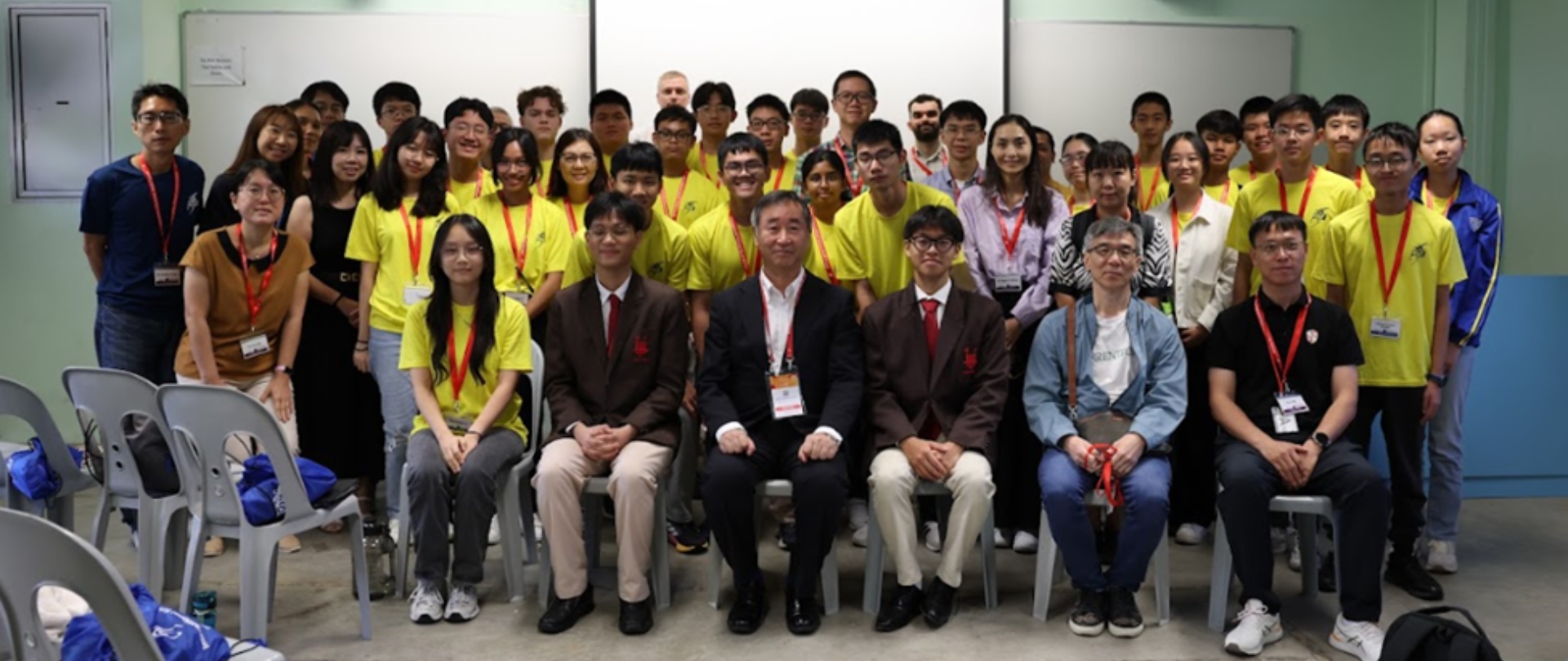 Students and Nobel laureate Prof Takaaki Kajita at his masterclass.
Students and Nobel laureate Prof Takaaki Kajita at his masterclass.
In addition to these global luminaries, the forum also benefited from the expertise of distinguished local scientists, including Dr Lee Hwee Kuan (A*STAR Centre for Frontier AI Research), Dr Li Jingmei (A*STAR Genome Institute of Singapore), Prof Chan Chun Yong Eric (Department of Pharmacy and Pharmaceutical Sciences, NUS) and Prof Ang Wee Han (Department of Chemistry, NUS).
Additionally, among the eminent speakers were Assoc Prof Hou Han Wei (School of Mechanical & Aerospace Engineering and Lee Kong Chian School of Medicine, NTU), who expanded on recent developments in microfluidics solutions for blood fractionation, single-cell biophysical profiling, and organ-on-chip models for cardiovascular diseases, and Assoc Prof Wu Wei (School of Civil and Environmental Engineering, NTU) who shared his inspiring research on resource discovery for geothermal and water resources, highlighting the potential for developments in Singapore’s energy and water sustainability.
Cultural Hour
Cultural Hour on Day 3 provided a vibrant platform for students to celebrate and share their unique cultural heritages through interactive booths. Participants and facilitators had cultural exchanges, including a display of traditional attires like the Baju Cara Melayu from Brunei, the Sampot from Cambodia, the Happi coat from Japan, the Baro’t saya from the Philippines, and the antique garments of Vietnam’s Nguyen Dynasty. Participants also learnt about other interesting cultural nuggets like the Korean alphabet, dim sum culture of Hong Kong, and a variety of festivals and dances.
.jpg?sfvrsn=58349a03_1) Dressed
in their traditional outfits, students shared interesting aspects of their
culture.
Dressed
in their traditional outfits, students shared interesting aspects of their
culture.
Keynote Lecture
One of the highlights of ISYF 2025 was the keynote lecture on Day 4 by Prof Hartmut Michel (1988 Nobel Prize in Chemistry), who spoke on “The Challenges in Biomedicine and Agriculture.” He discussed innovative approaches to improving photosynthesis to enhance crop yields, and the limitations of rubisco, an enzyme that plays a crucial role in the dark reaction of photosynthesis, showing how research in this field could aid in resolving global hunger. In addition, through compelling case studies, Prof Michel shared recent advancements in AI-driven predictions of protein structures that may pave the way for modern drugs to treat diseases. The session concluded with a lively fireside chat and Q&A session, where delegates posed thought-provoking questions, including one on the safety of genetically modified organisms in human diets. The engaging discussions left delegates inspired and motivated to pursue impactful research, where scientific breakthroughs intersect with fields like economics, sustainability, and environmentalism.
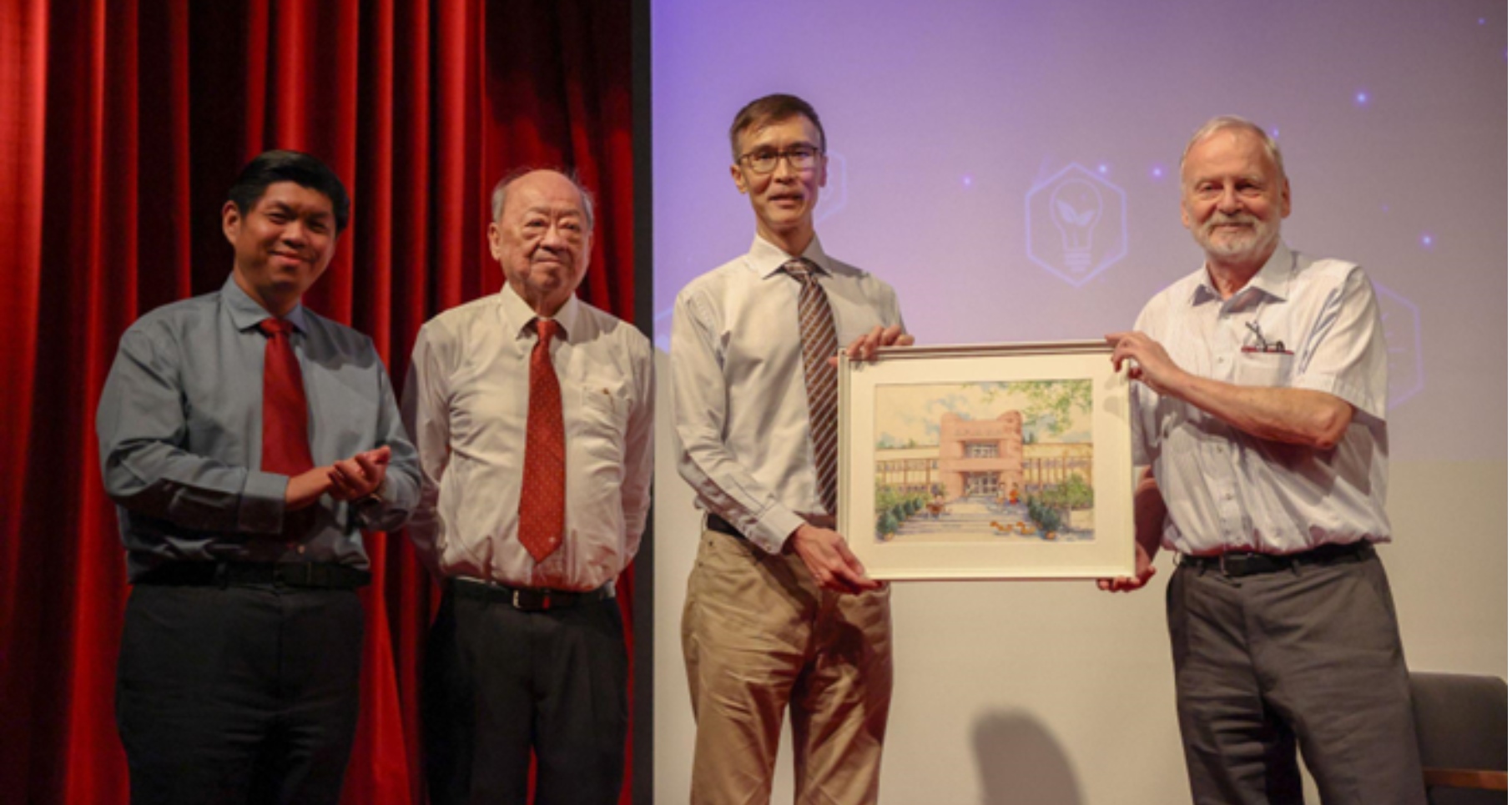 [From left] Mr Lee Peck Ping (Hwa Chong Institution Principal), Prof Phua Kok Khoo (Chairman of the ISYF Organising Committee), Prof Lim Keng Hui (Assistant Chief Executive Officer of the Science & Engineering Research Council, A*STAR) and Nobel Laureate Prof Hartmut Michel.
[From left] Mr Lee Peck Ping (Hwa Chong Institution Principal), Prof Phua Kok Khoo (Chairman of the ISYF Organising Committee), Prof Lim Keng Hui (Assistant Chief Executive Officer of the Science & Engineering Research Council, A*STAR) and Nobel Laureate Prof Hartmut Michel.
ISYF 2025 highlighted the value of diversity in fostering cross-border collaboration, a sentiment echoed throughout the forum. Speakers like Assoc Prof Hou Han Wei and Prof Hartmut Michel emphasised the importance of interdisciplinary teamwork among engineers, biologists, and clinicians to tackle complex global issues. The call for collaboration underscored ISYF’s mission: to inspire and empower young scientists to work together toward a brighter, innovative future.
ISYF 2025 demonstrated that science stretches beyond the borders of benzene rings and mathematical equations - it is a bridge between disciplines, cultures, and generations. As the forum concluded, participants left with enriched perspectives, newfound connections, and a shared commitment to making the world a better place through science and innovation.
Written by Yap Leia | Hwa Chong Institution
Pictures by Wang Jixiang Jason, Poon Yee Way, Quek Zhi Xing and Chan Li Xuan Rianne | Hwa Chong Institution

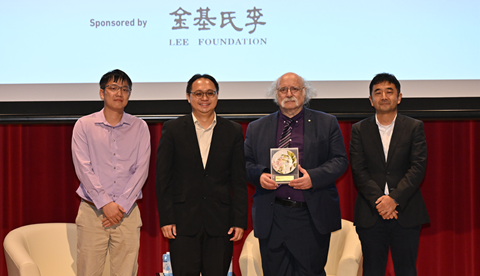
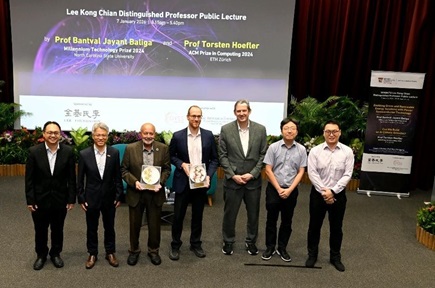
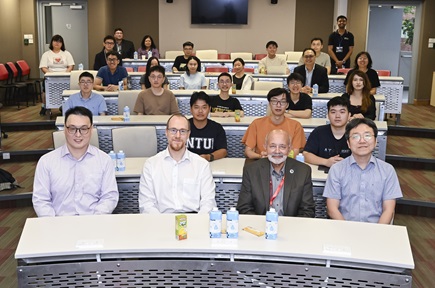
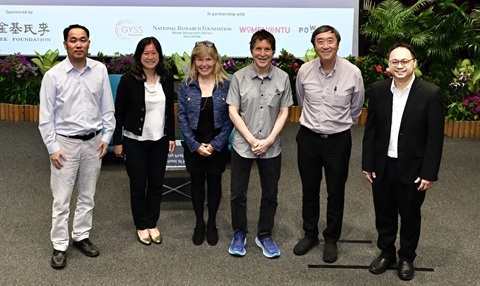
.tmb-listing.jpg?Culture=en&sfvrsn=c45c3c7e_1)
